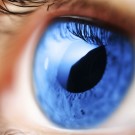Eye conditions – Glaucoma
It’s estimated that more than 500,000 people have glaucoma in England and Wales but there are many more that may be unaware they have condition.
Glaucoma is a visual condition which can affect sight and is usually due to build up of pressure within the eye. Glaucoma mostly affects both eyes but one eye may develop glaucoma quicker than the other.
Within your eye ball there is a fluid called aqueous humour which is constantly produced by the eye and the excess is then drained though tubes. If the fluid cannot drain properly and the intra-ocular pressure builds up, Glaucoma can develop.
In turn, this can lead to damage of the optic nerve (which connects the eye to the brain) and the nerve fibres from the retina (the light-sensitive nerve tissue that lines the back of the eye).
What are the different types of Glaucoma?
- Chronic open-angle glaucoma – the most common type of glaucoma and develops very slowly.
- Primary angle-closure glaucoma – much rarer and can occur slowly or may develop rapidly with a sudden, painful build-up of pressure in the eye.
- Secondary glaucoma – this condition mainly occurs as a result of an eye injury or a complication associated with another eye condition.
- Developmental glaucoma (congenital glaucoma) – a rare but sometimes serious type of glaucoma in very young children, caused by an abnormality of the eye.
Treating glaucoma
Glaucoma can be treated with eye drops, laser treatment or surgery. Early diagnosis is crucial because any damage to the eyes cannot be reversed. Treatment aims to control the condition and minimise future damage.
Preventing glaucoma
Your regular eye examination helps ensure any signs of glaucoma can be detected early and anyone over 40 years old and who have a first-degree relative (mother, father, sister or brother) with glaucoma, are entitled to a free NHS eye examination once a year.
Glaucoma is just one of many visual conditions that our Optometry team look for during your regular eye examination. Keeping up to date with these important checks are a bit like an MOT/Service for your eyes – ensuring everything is in tip top condition and having the opportunity to spot problems before they develop.
Richard


